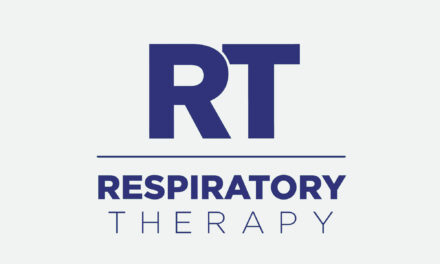The American Thoracic Society (ATS) has issued clinical practice guidelines to help pediatricians and pediatric pulmonologists evaluate infants with recurrent or persistent wheezing, according to an organization announcement.
The guidelines are published in the August 1 issue of the American Journal of Respiratory and Critical Care Medicine and are available online.
“Persistent wheeze is a common problem,” said Clement L. Ren, MD, professor of clinical pediatrics at Indiana University School of Medicine and guidelines co-chair. “It’s a condition that diminishes an infant’s quality of life, consumes a lot of medical resources and places a significant burden on families, including sleepless nights for parents and lost days of work.”
The 19 clinical and research experts who wrote the guidelines considered only diagnostic tests viewed as specialized or controversial. Tests, such as chest radiography, that are considered standard of care are not addressed in the guidelines.
The guideline authors reviewed findings of relevant studies, weighed the strength of study design and then made a series of recommendations. Their confidence in their recommendations were rated using the Grading of Recommendations, Assessment, Development, and Evaluation (GRADE) system. Because few well-designed studies relevant to the questions the guidelines address have been conducted, the authors of the guidelines consider all their recommendations conditional.
For infants younger than 24 months with persistent wheezing despite treatment with bronchodilators, inhaled corticosteroids, or systemic corticosteroids, the authors suggested:
- An airway survey via flexible fiberoptic bronchoscopy,
- Bronchoalveolar lavage,
- 24-hour esophageal pH monitoring rather than upper gastrointestinal radiography,
- 24-hour esophageal pH monitoring rather than gastrointestinal scintigraphy, and
- Video-fluoroscopic swallowing studies.
In infants who do not have eczema but have persistent wheezing despite treatments with bronchodilators, inhaled corticosteroids, or systemic corticosteroids, the authors recommended against empiric food avoidance or dietary changes. They did recommend, however, that research studies be conducted among these infants to determine if dietary changes help.
The authors also recommended that research be conducted to determine if infants whose care is guided by the results of pulmonary function testing using raised-volume rapid thoracoabdominal compression fare better than those whose care is managed through clinical assessment alone.
Although the guidelines produced only conditional recommendations, Dr Ren believes they can help physicians talk to parents and together “make as informed a decision as possible.”
“For instance, a doctor will be able to say to parents, ‘I think we should do a bronchoscopy because there’s a good chance it will find a lung infection, and then we’ll be able to treat it,’” he explained. “And the doctor would also be able to list the limitations of the test—without having to do an extensive literature search.”
Dr Ren also said that the authors of the guidelines hoped the document would spur more research, particularly in those areas where evidence is needed to make stronger recommendations.










